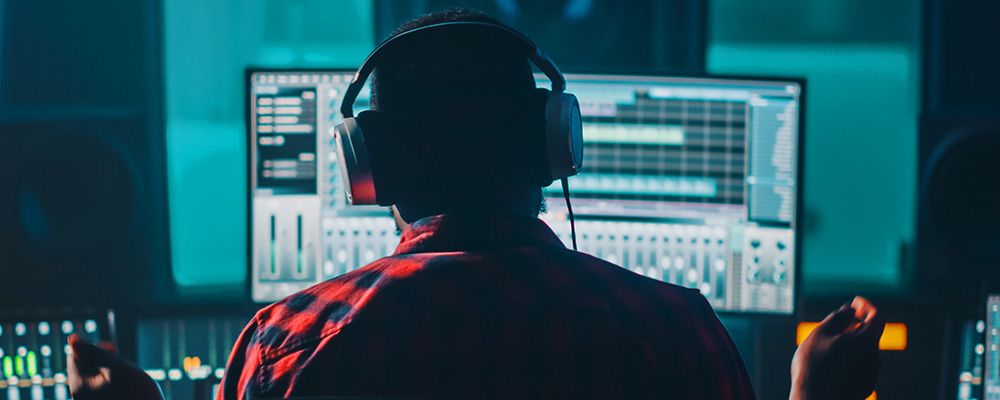Musicians Institute Instructor Joe “Computo” Caputo writes about several AI tools for music production as a part of his Artificial Intelligence August series of machine learning tools and tricks.
Artificial Intelligence has provoked quite a bit of interest (and existential fear) in recent months. Tools for generating visual art with the assistance of machine learning have captured quite a bit of attention, such as Midjourney and Dall-E-2, while AI has also been at the center of a few public relations nightmares (as with the outlandish claims of sentience in the Google LAMDA language model).
In the music world, AI assisted composition has existed for decades, as demonstrated in the 1990’s by the work of David Cope and his early composition AI, Emmy. Today, many machine learning tools exist for composers and producers to collaborate with, offering an exciting new world of creative possibilities.
Magenta Studio
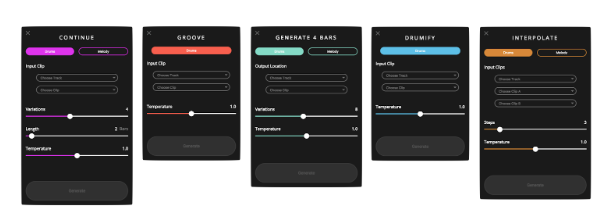

Blog Post
"*" indicates required fields
By submitting this form, I authorize Musicians Institute (MI) to make or allow the placement of calls, emails, and texts to me at the phone number that I have provided, including through the use of automated technology, or a prerecorded or artificial voice. I understand that I am not required to provide my phone number as a condition of purchasing any property, goods, or services. I agree to the terms of MI’s Privacy Policy. MI will not sell or rent your information to third parties, and you may unsubscribe at any time.
Magenta Studio is a project from Google, which includes a suite of five tools for machine learning composition. The tools can be run as a standalone application on MacOS and Windows, or they can be accessed through Session View in Ableton as a Max For Live device.
There are five different functions in Magenta Studio, each offering ways of manipulating or generating midi note data in midi clips. Some of the models use neural networks to analyze pre-existing clips that you make or select, creating note information based on your input. The others use trained systems to generate beats, themes and grooves.
Loading Magenta Studio may appear to stall your computer, as the file is fairly large for a MaxForLive device. Once loaded, you can choose between the 5 different modes, each with their own edit window. Try transcribing your favorite melodies and basslines to midi clips, and using interpolate to create variations of them. Using Continue, you can create the simplest of motifs, and the device will create variations to extend the theme into a more complete melody.
The process gets particularly interesting when you edit the results of one Magenta mode, and pass it back into another. Try using Generate to create a theme, and using Continue to expand on it. Crop one bar of the results and try again and again, creating a positive feedback loop of musical ideas and variations. The only difficulty is sorting through too many results, another common quandary when dealing with AI assisted work.
https://magenta.tensorflow.org/studio/
Google Nsynth
Google also has a free sound synthesizer project called Nsynth. The instrument can be downloaded and used as a Max For Live device just like any other M4L instrument device. The Nsynth is primarily operated by loading one of the many “grid” files that download with the instrument, each containing a different x-y wavetable map of Neural Audio Synthesis-generated sample files.

Google describes the Neural Audio Synthesis engine in the Nsynth device for Ableton:
“Because the WaveNet decoder is computationally expensive, we had to do some clever tricks to make this experience run in real-time on a laptop. Rather than generating sounds on demand, we curated a set of original sounds ahead of time. We then synthesized all of their interpolated z-representations. To smooth out the transitions, we additionally mix the audio in real-time from the nearest sound on the grid. This is a classic case of trading off computation and memory.”
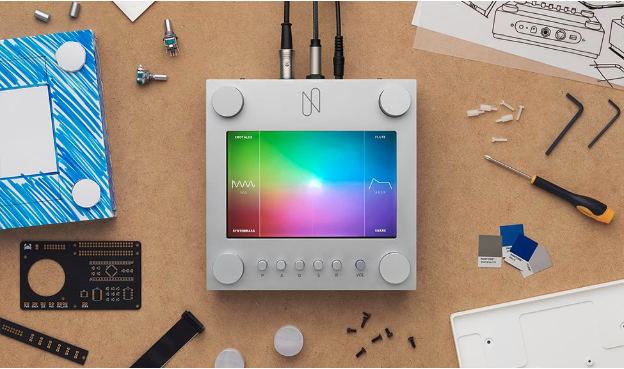
The synth appears (and occasionally sounds) rudimentary on the surface, but any synthesizer can tend to sound this way without any treatment. Filters and effects might be useful additions to the signal chain to liven up the sound of cat meows crossed with trumpet blasts. Google even has an open source hardware project called the Nsynth Super, for the very ambitious hackers and builders out there.
https://magenta.tensorflow.org/nsynth-instrument
Waves Cosmos Sample Librarian
Waves is well known for their wide range of mixing and mastering plugins, however they also make a ton of other tools. Recently they released a pair of tools, the CR8 Sampler and Waves Cosmos Sample Finder, an AI-driven sample manager and librarian tool for MacOS and Windows. The two applications integrate together, however Cosmos can perform all of your sample management needs completely by itself.
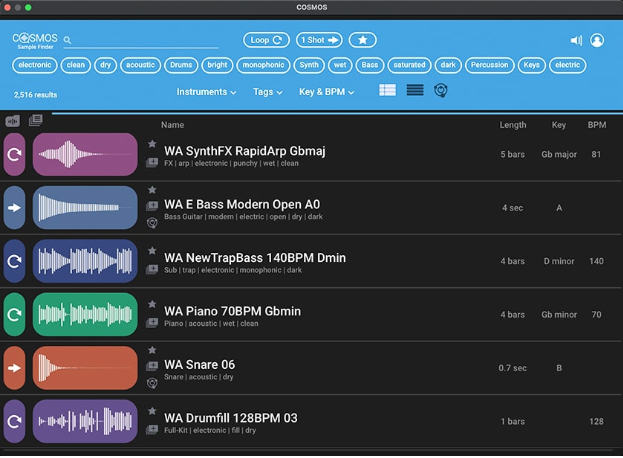
“COSMOS brings all the one-shots and loops on your hard drive into one easy-to-search place. It uses advanced Waves Neural Networks technology in order to analyze, auto-tag, and sort your entire collection of samples into one unified database where you can easily find everything. No matter where you placed your samples, or how the files are named – COSMOS will find them for you.”
I tried loading over 20,000 samples into Cosmos from all over my computer. It scanned through them in under an hour (though if you have a LOT of samples, you might want to set it to scan overnight) and tagged everything. It created a browser based on the characteristics of the samples, making them easy to sort through. Having looked for a unified organizational tool for sample management for ages, I found Cosmos to be refreshingly simple to use. The “Cosmos” view is also really cool, allowing you to drag your mouse through a universe of your samples to find the right sound.
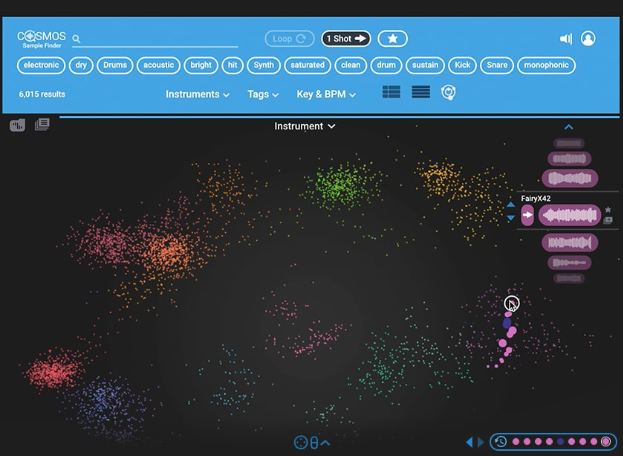
https://www.waves.com/plugins/cosmos-sample-finder#introducing-cosmos-sample-finder
Musicians Institute is the leader in contemporary music education offering certificates to Masters degrees in programs spanning instrument performance, electronic production, music business, and everything in between.
For more information on all programs offered, please visit here: mi.edu/programs/
For more information on MI Online programs, please visit here: mi.edu/programs/mi-online/

